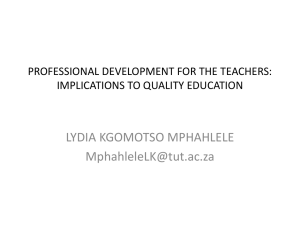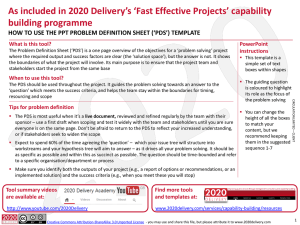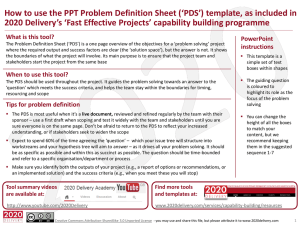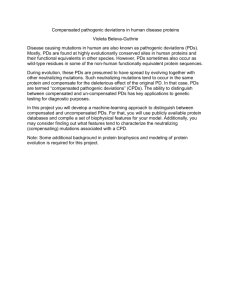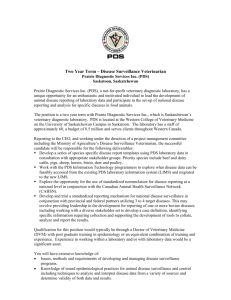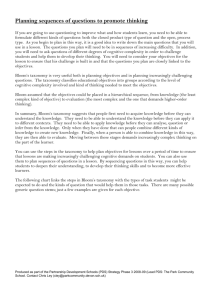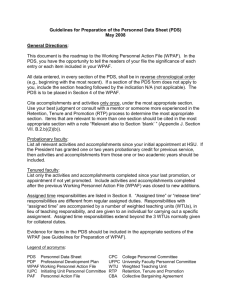A Vygotskian Model of Leveled Success for Candidates and
advertisement
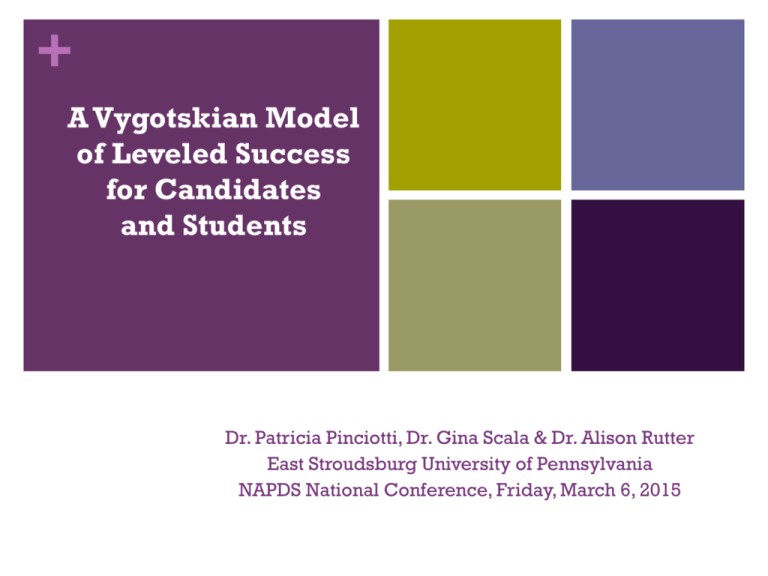
+ A Vygotskian Model of Leveled Success for Candidates and Students Dr. Patricia Pinciotti, Dr. Gina Scala & Dr. Alison Rutter East Stroudsburg University of Pennsylvania NAPDS National Conference, Friday, March 6, 2015 + Who We Are East Stroudsburg University Eastern Pennsylvania One of 14 State System Universities Student Profile Many first generation college students Mid-career students and transfer from CC Often need to work while going to school Gaps from K-12 education Care about children Belief they can become teachers + Fieldwork Requirements in PA Ahead of the Curve ~ Collaborative Response to Mandates ~ ELED & Integrated ELED/SPED PDS Established in 1999 Full scale implementation by 2003 New Program Requirements Pre K-4 and Pre K-4/SpEd Pre K-8: PreK-4 & PreK-4/SPED – 2012 Inclusion of Pre K Experience Multiple Field Sites Current Leveled Model of PDS Fieldwork - 2013 + Vygotskian Model: Zones of Proximal Development ESU PDS model highlights ZPD aspects: An integrated theory of learning: meta-cognitive strategies, organized around motivations of the learner, dependent on social interactions. Experiential, embodied, and holistic: ways of learning negotiating meaning. Respect for individual interactions with others contribute to their negotiation of meaning. Negotiating meaning demands mutual efforts. Fredrickson, 2011 Becoming a Teacher is a Creating Activity. PDS is a leading – learning – environment involving +ESU’s PDS offers an environment where meaning is shared and socially constructed with individuals mutually influencing each other’s processes of understanding. Zones: Within Settings Fieldwork Experience PDS Site ESU University + ESU Pre K-4/SpEd Pre K-8 Fieldwork Model + Overlapping ZPD’s: Engagement Within Fieldwork Differentiated roles & responsibilities at each Fieldwork level • Advancing and layering Knowledge, Skills, and Dispositions in the PDS/ESU contexts • Pre K: Head Start – Half day/wk - Project Approach PDS Primary I – One day/wk - 10 weeks PDS Primary II – Two days/wk - 12 weeks Student Teaching – One Half of 15 weeks + Overlapping ZPD’s: Interaction and Support Mediated Support at Each Fieldwork/Cohort Level Contexts, Challenges, Reflections and Conversations AT ESU and PDS Sites Roles ~ Choices ~ Responsibilities ~ Collaboration ~ + • Home - School Connections PDS + ZPD Learning, Leading Environment 1. 2. 3. Freedom from Knowing Socially Imitative Completion Activity • PDS Learning Community • Competence View of Learners Advocacy for Students and Families Integrative, Differentiated Teaching Co-Teaching Professionalism Inquiry – Digging Deeper Comprehensive Assessment Model Making Teaching and Learning Visible + Blurring the Lines Between Home & School: Pre-K Semester ½ day/Week with ECE Teachers - Two weeks with ESU Faculty and ECE Teachers Focus on Typical and Atypical Development and Learning Building Laying Concepts of Family & Community the foundation of Professionalism, Multiple Literacies, Integration, Documentation, and Inquiry + Becoming Part of PDS Community: Primary 1 Semester 1 Day/Week in the Field with a Mentor Teacher & Building Liaison with Supporting University Faculty Layering Concepts of Community with a Wider Social Conscience Multi-Literacy Discoveries and Understanding: Becoming a Reader in School & at Home Infusing the Arts to Integrate Experience Managing and Assessment in the Classroom + Learning to Advocate in the Primary II Semester 2 Days/Week with Mentor Teacher, Building Liaison & University Liaison Supporting Faculty Professionalism: School-Community Relations Honing School Knowledge and Content in Math, Science & Language Arts Including and Differentiating for All Learners Advocating Community for Children and Families in a PDS + Visible Meaning in Student Teaching 15 weeks with Co-operating Teacher, University Supervision with Supporting Faculty 2 Placements -- Return to Primary I/II placement plus a new second site (Special Ed or Another PDS/grade level) Co-Teacher: Planning Differentiated Teaching with multiple Adults for student success Teacher as Researcher Course – Advancing Inquiry Skills to Support Student Learning + Development based on collaboration and imitation is the source of all specifically human characteristics of consciousness that develop in an individual (child). Vygotsky, 1987, p. 210 PDS Relationships are creative and transformational for ALL #NAPDSinDC
